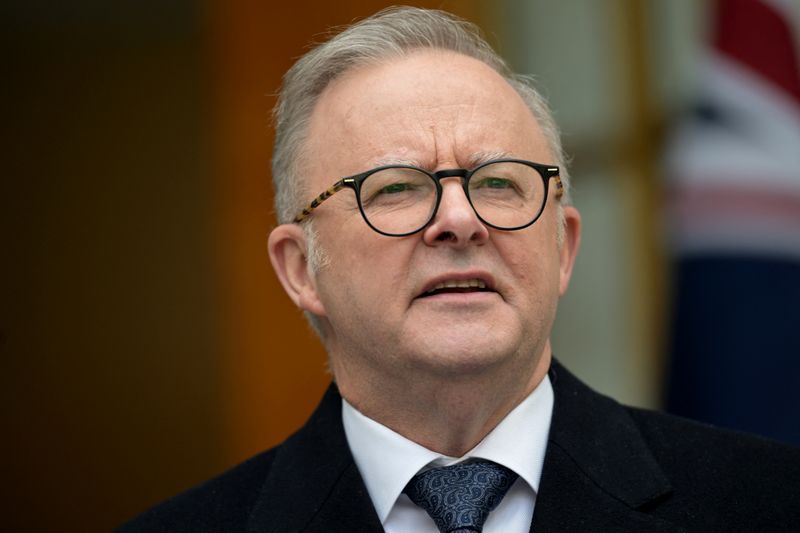By Kirsty Needham
SYDNEY (Reuters) -Australian Prime Minister Anthony Albanese, who departed for Vanuatu on Tuesday, said in a radio interview that a landmark security and development agreement with the Pacific island nation will not be signed as expected.
The Vanuatu deal is one of two major security agreements Australia had expected to sign with Pacific island neighbours this month, as Canberra seeks to block China from expanding its security presence in the region.
Vanuatu Prime Minister Jotham Napat’s office, which last month said the Nakamal Agreement was finalised and would be signed by the two leaders in September, did not respond to a request for comment on Tuesday.
Vanuatu has been seen as close to Beijing, its largest external creditor, after Chinese banks extended loans for Chinese companies to build infrastructure including a presidential office complex, parliament and roads.
Australia had initialed a deal worth A$500 million ($326.5 million) to strengthen economic and security ties, in a ceremony with ministers from the two countries on the side of a volcano in Vanuatu last month.
“I wouldn’t expect that it would be signed today, but what we will do is progress it,” Albanese said in a radio interview with the Australian Broadcasting Corporation.
“Vanuatu politics can be very complex,” he added.
A 2022 security deal signed by Australia and Vanuatu, months after China signed a pact with Solomon Islands, was later blocked by Vanuatu after failing to win domestic political support.
Albanese will travel with Napat to the Pacific Islands Forum regional leaders summit in Solomon Islands on Wednesday.
He is expected to travel to Papua New Guinea next week for 50th anniversary of independence celebrations, where a new defence treaty between Australia and PNG is due to be signed.
Albanese said he would tell the forum leaders that Pacific security needed to be “undertaken within the Pacific family”.
(Reporting by Kirsty Needham in Sydney; Editing by Stephen Coates)

